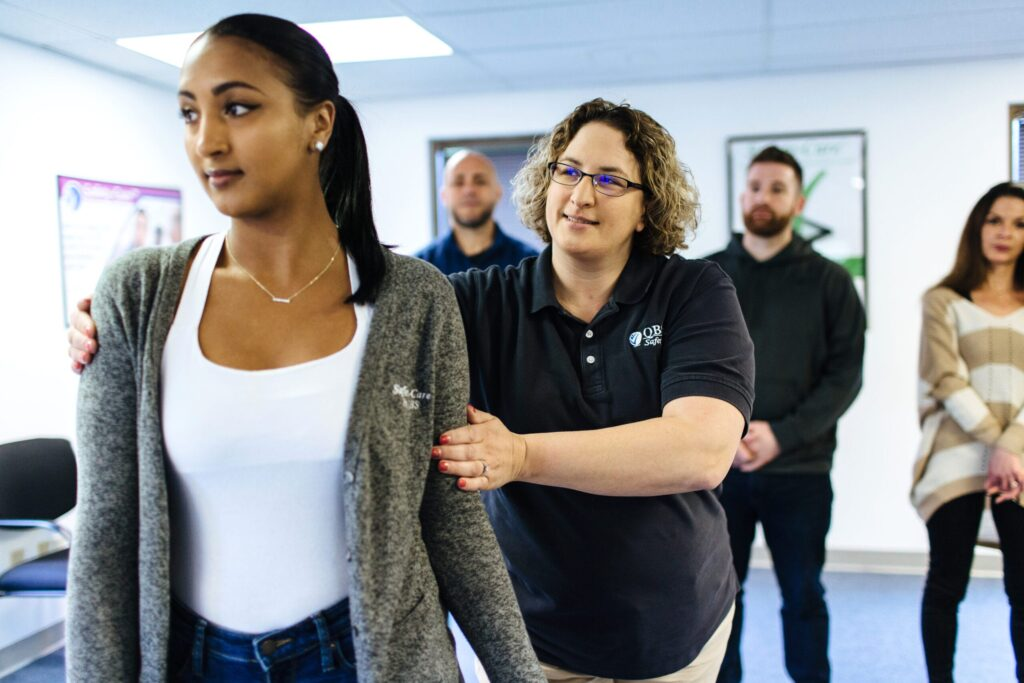Vermont 10P037, Rule 4500 – Restraint and Seclusion in Public Schools
Upon the adoption of Rule 4500, public schools in the state of Vermont were required to establish certain guidelines regarding the use of restraint and seclusion. Schools must create and maintain safe learning environments for students.

.png?width=88&height=95&name=Group%20137%20(5).png)


How to Implement Safety-Care?
-
Register for a Safety-Care Trainer class or call us to request a closed session for your organization. We regularly conduct classes in all 50 states and Canada.
-
Complete your class to become a certified Safety-Care Trainer for your organization. We bring you to fluency using an errorless teaching methodology.
-
You train and certify your staff in Safety-Care’s effective techniques.
-
Our Master Trainers are available by phone, email, or video to help your organization with any questions or concerns while using or implementing Safety-Care.

Legal Requirements
|
Summary and Safety-Care Alignment: Effective: August 15, 2011 Last Updated: December, 2024 Upon the adoption of Rule 4500, public schools in the state of Vermont were required to establish certain guidelines regarding the use of restraint and seclusion. Schools must create and maintain safe learning environments for students. These requirements also include the use of positive behavior interventions and supports (PBIS) and limits the use of inappropriate restraints. Only when a student’s behavior presents an imminent and substantial risk of injury, is restraint authorized. Training for staff must be used by districts. The Department of Education will maintain a list of recommended providers. How Safety-Care aligns: Numerous organizations throughout the United States and Canada rely upon QBS and our Safety-Care training to provide their staff members with the training they need to help maintain a safe and healthy environment. Safety-Care provides a comprehensive, supportive approach to incident prevention, de-escalation, and management. Your Staff will learn practical strategies for helping students that use evidence-based practices consistent with PBIS (Positive Behavior Interventions and Supports) and ABA (Applied Behavior Analysis). |
Why Safety-Care?
Benefits & Differentiators
In addition to Safety-Care being highly cost-effective, you get:

Skills to effectively prevent, minimize, & manage behavioral challenges with dignity, safety, & the possibility of change

Decreases in staff and patient injuries and reduction in restraint & seclusion time

Instructional procedures based on decades of evidence-based research & compatible with ABA, PBIS & reinforcement-based environments

Customizable program for your setting, staff & clientele, with a strong focus on preventative via non-intrusive, replacement behaviors

Extremely rigorous standards grounded in errorless teaching methodology

Small, intimate class sizes backed by unlimited support & resources
How Is Safety-Care So Effective?
A Genuine Focus on Implementing & Managing Positive Behavioral Skills
Proactive, environmental management recommendations
Understanding of evocative effects of staff behavior
In-depth analysis of antecedents and proactive antecedent interventions
Evidence-based reinforcement procedures
Required competency in de-escalation skills
Humane, non-invasive touch and QBS Check™ strategies
Evidence-based teaching procedures
Applicable to a wide array of settings, conditions & challenging behavior





